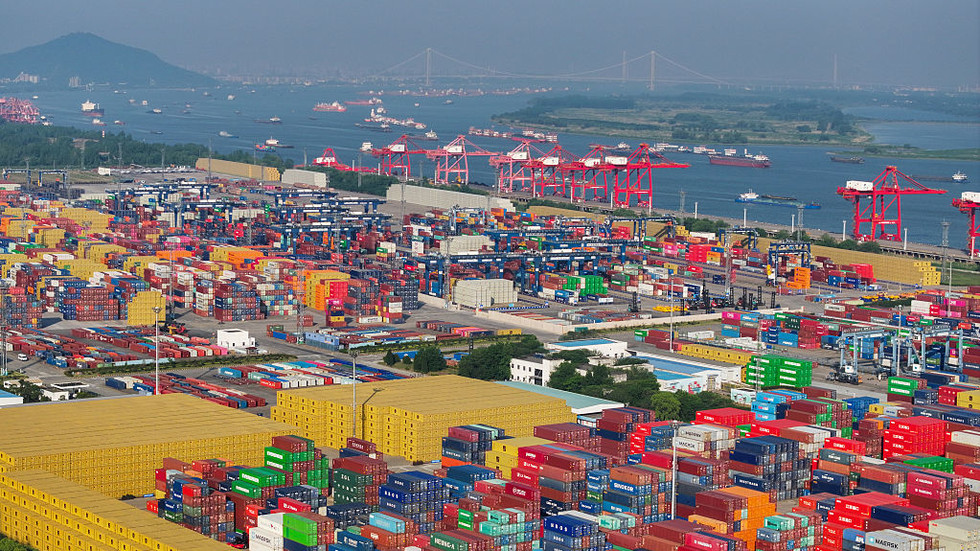Washington earlier claimed that Beijing breached the deal recently reached in Geneva
The US has “seriously” violated the latest trade deal between Washington and Beijing, the Chinese Ministry of Commerce said on Monday, vowing to take measures to defend China’s interests. The accusation followed similar claims made by US President Donald Trump against Beijing.
Under the deal announced on May 12 following breakthrough negotiations in Geneva, the world’s two largest economies agreed to suspend most new tariffs imposed since early April, pending further talks.
“If the US insists on its own way and continues to damage China’s interests, China will continue to take resolute and forceful measures to safeguard its legitimate rights and interests,” the ministry said in a statement. It went on to claim that the White House violated the consensus reached between Trump and Chinese President Xi Jinping during their most recent conversation earlier this year.
Among the US actions listed by the ministry were global warnings against the use of Huawei chips, the suspension of chip design software sales to Chinese companies, and the cancelation of visas for Chinese students.
On Friday, Trump lashed out at the Chinese government, claiming that the agreement had been “totally violated” by Beijing, without providing details. He added that China had been in “grave economic danger” as a result of the tariffs before Washington stepped in with the “fast” deal.
Under the terms of the deal reached in Switzerland, the 34% tariff hikes introduced on April 2 were paused for 90 days, with Beijing taking reciprocal measures. Both sides also committed to rolling back tariff increases introduced since April 8, while maintaining a baseline of 10% on mutual imports. China additionally agreed to ease certain non-tariff measures, such as export controls on US goods.
Last week, US Trade Representative Jamieson Greer claimed that China had not removed specific non-tariff barriers as agreed under the deal. Treasury Secretary Scott Bessent echoed this sentiment, stating that the talks were “a bit stalled” and might require direct involvement from Trump and Xi.
Beijing responded by calling on Washington to immediately correct “its erroneous actions,” cease discriminatory restrictions against China, and jointly uphold the consensus reached at the high-level talks in Geneva.
Tensions between the two economic powers escalated on April 2, when Trump introduced broad new tariffs targeting over 90 countries, including China, citing concerns over the trade deficit. China retaliated, launching a tit-for-tat trade standoff in which tariffs increased to 145% and 125%, respectively, on mutual imports by Washington and Beijing.
Read the full article here


